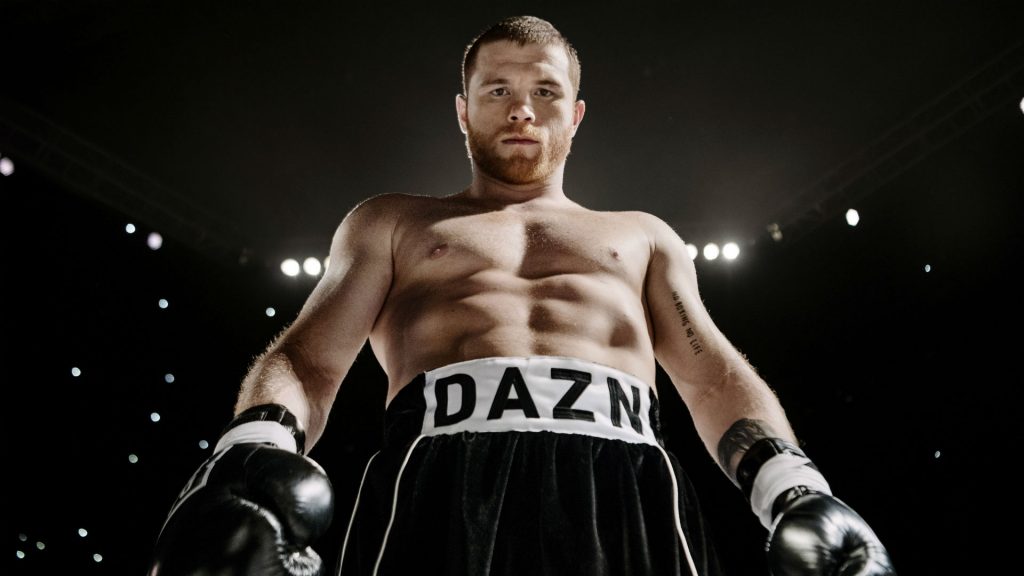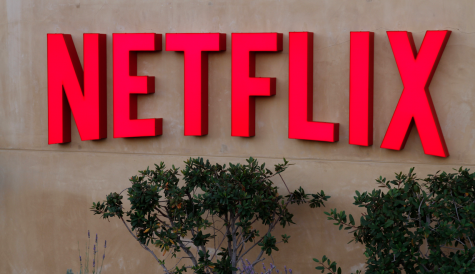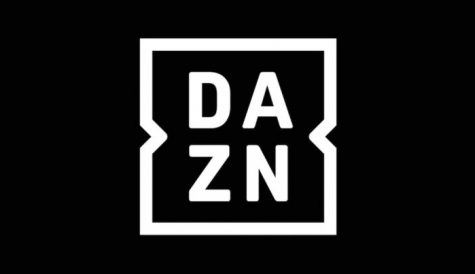How DAZN plans to take on the world and win – exclusive interview with EVP Joe Markowski
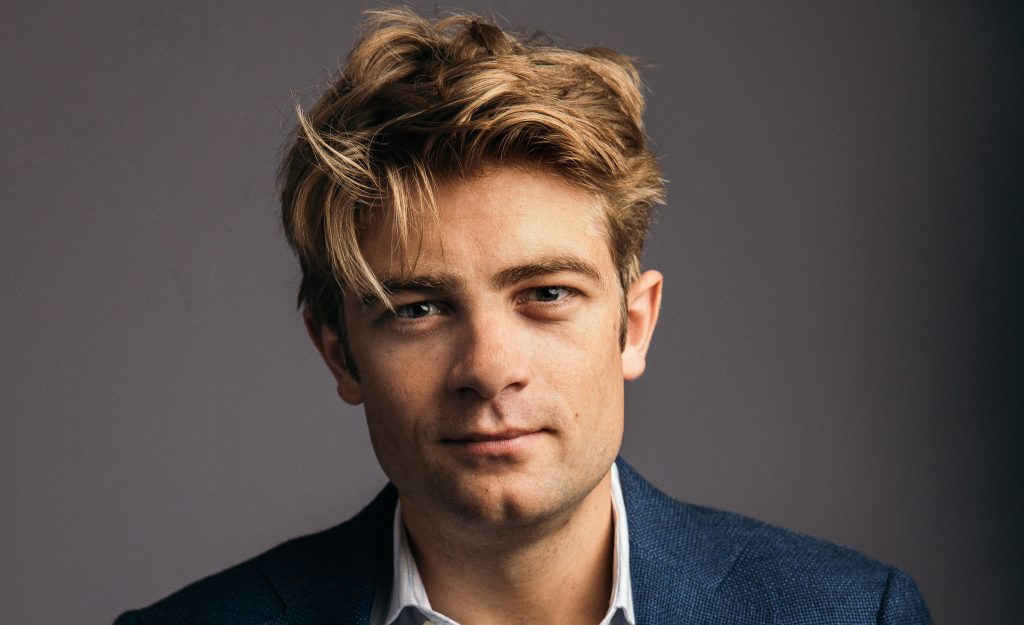
Joe Markowski, EVP, DAZN
When DAZN this week announced it was expanding to 200 countries and territories, many observers were caught off-guard, but it is the culmination of years of efforts from the company.
Since launching in 2016 in Austria, Germany, Switzerland and Japan, the London-based disruptive sports streamer has gradually rolled out its service to five other markets – Canada in 2017, the US and Italy in 2018, and Spain and Brazil in 2019. Despite this staggered launch, now is the right time to pull the trigger on this large-scale roll-out, says DAZN EVP Joe Markowski.
“Since the very early conversations about DAZN – long before it was called DAZN – our ambition was to make it a global service, to become the world’s largest and most prominent sports streaming broadcaster,” says Markowski. “This is the culmination of a year of technical, operational and content aggregation with our various teams.
“It felt like the moment in time for us to get into a more competitive landscape in terms of streaming of sport and competition for rights. For me it makes a load of strategic sense.”
Another benefit for DAZN is data. “We will Immediately pick up a huge base of really valuable data points in each of the markets in which we turn the service on,” Markowski says. “And that will drive future decision making in content and marketing investment.”
Despite it making strategic sense to the company, this global launch “represents a turn-around in DAZN strategy,” according to Omdia senior analyst Tony Gunnarsson.
He says: “In the last few years, the streamer has insisted that global expansion is off the table; DAZN’s key marketing message to date has been to amplifying the large degree of editorial content that is added to live feeds of matches.”
Often dubbed the “Netflix of sport” by commentators (though this is a title which Gunnarsson says DAZN is “unlikely to live up to”), the service has largely gone from strength to strength in its nine markets. Omdia estimates that the service has 6.41 million subscribers in its nine available markets – with those initial countries expected to hit 11.64 million by 2023.
DAZN offers different services from country to country, ranging from broad sports rights in the likes of Italy and Japan with rights to football and motor racing, to a more specialised boxing-oriented product in the US. The latter is what will be offered to consumers worldwide upon its May 2 launch.
Heavy hitter
The streamer will launch with the next fight of four-division world champion Canelo Alvarez – who signed an eleven-fight US$365 million deal with DAZN in 2018.
Jumping up from nine countries to over 200 is no small task, but Markowski said that the decision was informed by two key points: “It’s a really simple answer – we own the content globally and we’re technically capable of doing it.”
He continues: “We’ve built up significantly sized teams that are capable of doing this on a mass global scale. We have a platform that has, over three-to-four years, proven that it can handle major globally distributed audiences around specific events.”
The EVP adds that DAZN in 2019 saw an average of two events a week carrying over a million concurrent streams. “That’s a huge achievement technically,” he says.
In terms of content, DAZN holds international rights to many of the world’s top promotional companies including Golden Boy Promotions, Matchroom Boxing USA and GGG Promotions.
Much of this to date has been sold on to broadcasters and operators around the world, but the “light investment” to launch in these new territories has been deemed as providing more value to the company.
As Maria Rua Aguete, technology fellow and executive director of media, service providers, and platforms at Omdia points out: “This expansion is a clever way to pay for the huge amount of boxing rights acquired (approximately US$1 billion) that is not possible to be paid for by the current subscriber volume base in the US alone.”
That’s not to say that DAZN will entirely disregard its relationships with operators, far from it. “Operator distribution has been an essential part of our strategy,” says Markowski, pointing towards its distribution deals in Italy and Japan as “good examples of working with legacy pay operators.”
He adds that “operator partnerships are a good way of ensuring everyone becomes DAZN members,” particularly older audiences who are more accustomed to traditional linear TV and who may not want – or be unwilling to switch to – an interactive service with an overwhelming catalogue of content.
“I’m blessed to have parents in their mid-60s who are relatively digitally savvy for their age, but a lot of their friends and definitely my grandmother’s generation are definitely not as comfortable with it.
“It would be naïve, restricting and – I would stress – morally not appropriate if we ignored those groups of society. A big part of our promise to consumers is to make sport more accessible, more affordable and more democratised and we see operator and linear TV partnerships – when they make commercial sense of course – as a big part of that offer in certain markets.”
Markowski, who previously was solely in charge of the US, highlighted a deal with Comcast as “the first of many dominoes to fall” in that market, while the company “will look to replicate these deals all around the world.” It already has deals in place with Japanese Hikari TV, Swisscom, Jcom and Sky in Italy and Germany.
However, while DAZN is working with operators, Markowski has a somewhat hostile attitude towards their practices.
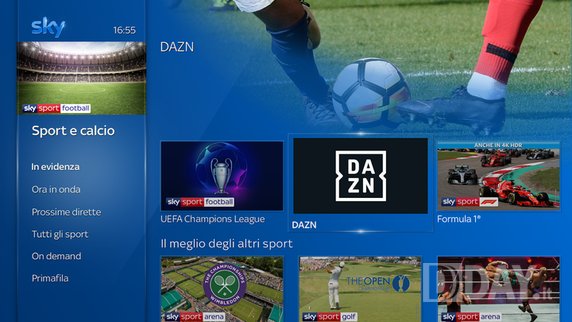
DAZN has been available on Sky in Italy and Germany since 2018, launching an Italian linear channel in 2019
An “unfriendly business”
“[Viewers are turning towards OTT services] because they’ve been exposed to an extremely fat and hostile business model for the last 30 years in most major media markets,” he says. “Pay TV and pay per view in some markets has eroded the appetites of fans – especially young fans – to regularly consume content. [They have] made sport inaccessible for large swathes of society.”
Markowski believes that the rise of sports streaming services such as DAZN is “consistent with why Netflix on an entertainment basis and Spotify on a music basis are so popular – people want access to content in a flexible, affordable and consumer-friendly way.”
He adds: “Consumers are tired of having their pockets raided on a monthly basis. In the UK it is easy to forget that in the US sports fans are being asked to pay a cable bundle of north of US$200 per month. On top of that if you’re a boxing fan you’re being asked to pay for three or four PPV shows a year at US$70-90.
“The cost of sports fandom in major media markets is incredibly high.”
Pricing has not yet been confirmed for the wider launch, but the exec promised that it would be “more accessible and affordable”.
While DAZN is focused on keeping the price down, outspoken boxing promoter Eddie Hearn earlier this year said that it should increase the price by more than double. He said that the subscription cost is undervalued and suggested that DAZN “make it US$50 a month.”
While it may look to adjust pricing in the future, for now the streamer wants to create a compelling product with accessibility at its heart.
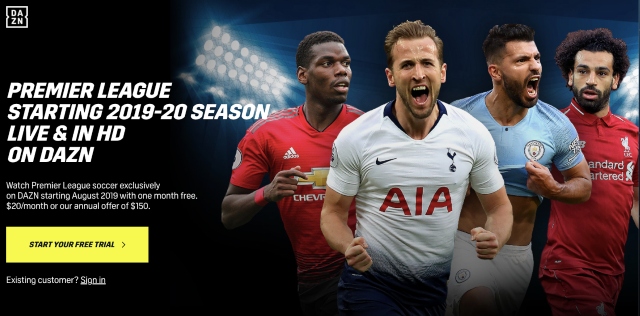
DAZN owns the rights to the English Premier League in multiple territories, including Canada, but picking up the rights in the UK would be a huge investment
The right rights
Markowski is insistent that it is only focused on this initial launch with a boxing product, but there has been years of speculation that DAZN has its eye on the Premier League in England. The streamer already broadcasts the league in markets such as Japan and Italy, but claiming the rights for the the EPL’s native territory would be an obvious statement of intent.
In October 2019, DAZN CEO John Skipper – formerly of Disney-owned ESPN – suggested that the UK was a “logical market” but that it would “obviously” need the Premier League rights in order to really disrupt the market.
Markowski won’t be drawn into discussing whether it will look to the league when it issues its next rights tender in 2022 or if it was paying attention to Amazon’s breakthrough into the market.
Irina Kornilova, principal analyst at Omdia, is cautious about speculation on DAZN’s future rights purchases.
“Sourcing compelling rights for the second phase of rollout looks to be more challenging,” she says. “DAZN has rights to football leagues in several markets, but the cost of acquiring worldwide rights to the top-tier leagues will be prohibitively expensive.”
“Expecting DAZN to bid for the UK rights to the Premier League, for example, is probably missing the point and likely something DAZN has no intention of doing (unless the opportunity arises). Instead DAZN could cut the rights trading middlemen out of the process by acquiring all rights outside the home territory or offer a global platform for rights holders to second tier leagues like the EFL or Aussie league football.”
The EPL – along with other major sports rights – may or may not be in its sights for the future, but right now DAZN is focused on ensuring that its May launch is a success.
“I’m extremely proud to say that less than four years post-launch we are going to be the world’s first truly global sports broadcaster,” concludes Markowski.

